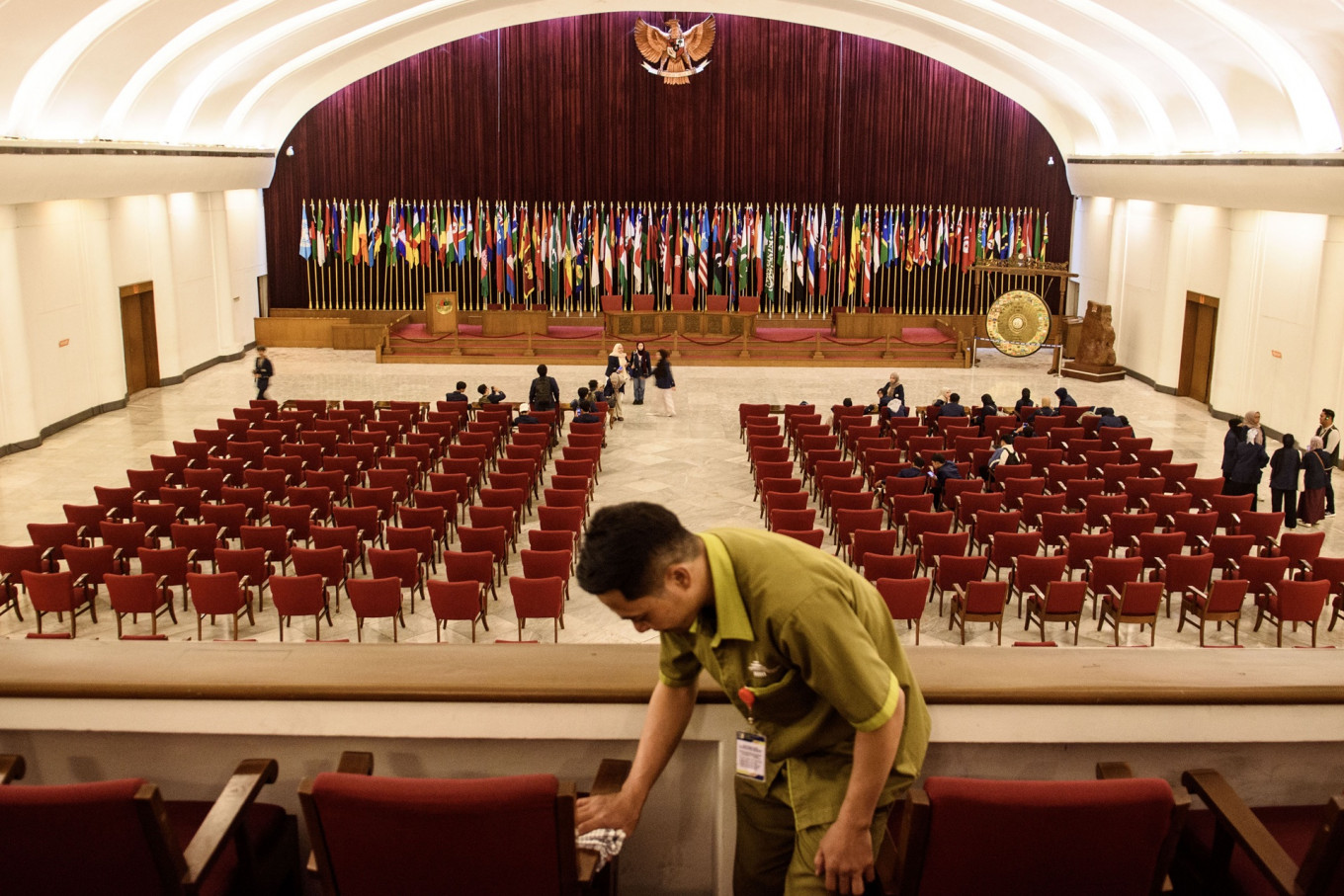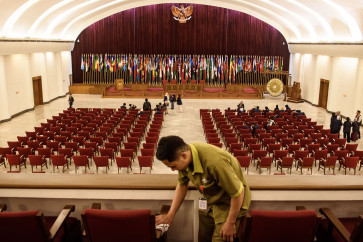Popular Reads
Top Results
Can't find what you're looking for?
View all search resultsPopular Reads
Top Results
Can't find what you're looking for?
View all search resultsBandung principles, world order and the imperative for change (part 2)
The immediate impact of the recent global trends has been the painful marginalization, or more aptly, re-marginalization, of the Global South.
Change text size
Gift Premium Articles
to Anyone
 Historic venue: A worker cleans chairs at the main hall of the Merdeka Building on April 16 in Bandung, West Java. The building was the site of the 1955 Asia-Africa Conference, also known as the Bandung Conference, where 29 Asian and African countries convened in the spirit of anti-colonialism. (Antara/Novrian Arbi)
Historic venue: A worker cleans chairs at the main hall of the Merdeka Building on April 16 in Bandung, West Java. The building was the site of the 1955 Asia-Africa Conference, also known as the Bandung Conference, where 29 Asian and African countries convened in the spirit of anti-colonialism. (Antara/Novrian Arbi)

There is a clear, albeit imperceptible, thread running from the Bandung Principles to the core elements of the Global South. It relates to the opposition by a large chunk of humanity to exploitation, domination, injustice and advocacy of equity, fairness and inclusivity.
As scholars Nour Dados and Raewyn Connell point out: “The term Global South functions as more than a metaphor for underdevelopment. It references an entire history of colonialism, neo-imperialism and differential economic and social change through which large inequalities in living standards, life expectancy and access to resources are maintained.”
The immediate impact of the trends described above has been the painful marginalization, or more aptly, re-marginalization, of the Global South in the past three months. The global agenda of developing countries comprising, inter alia, debt relief, support for Sustainable Development Goals, financing for energy transition and development, reform of multilateral institutions and access to digital transformation, have been overtaken by issues that matter to the Great Powers like the United States, European Union, Russia and China.
With amazing speed, the solid achievements secured by the four consecutive presidencies of G20 by developing nations, including Indonesia, India, Brazil and South Africa, have been ignored and eroded. The result of these combined endeavors was twofold: The G20 reflected, by consensus, the principal concerns and expectations of the developing world, and it opened its doors to full membership of the African Union (AU) in September 2023 under the Indian presidency.
The excellent work, which was begun by Indonesia and later expanded and reinforced by India and Brazil, has continued. However, South Africa has been facing severe headwinds from the US neglect of G20 as the world's premier economic forum.
Presenting the presidency’s perspective, Ronald Lamola, Minister of International Relations and Cooperation of South Africa, spoke of “a pivotal moment” in terms of global trade and geo-economic pressures, noting that at the center are “widening geopolitical divisions.”
They have created a climate of distress that could unravel the progress achieved by the G20 so far in addressing global challenges. We shall no doubt hear more on this aspect from our distinguished African colleagues later today.


















